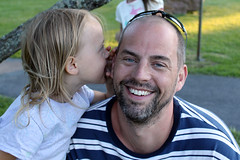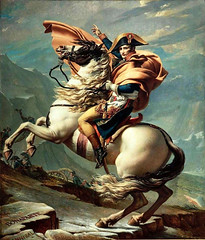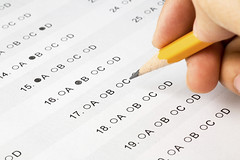AP Psychology Personality Flashcards
Terms : Hide Images [1]
| 7252158498 | Sigmund Freud | Founder of psychoanalysis Originally a medical doctor and found that his patients were suffering from an illness with psycho-logical causes This led him to develop theories of the unconscious mind, psycho-sexual development and Psychoanalysis |  | 0 |
| 7252158499 | Psychoanalytic Theory | Psychologist: Sigmund Freud Behavior is due to unconscious motives and conflicts Early childhood experiences determine personality |  | 1 |
| 7252158500 | Unconscious Mind | -foundation for the psychoanalytic theory -controls the phenomena of repressed feelings, automatic skills, subliminal perceptions, thoughts, habits and automatic reactions as well as possibly holding emotional complexes, phobias and desires. |  | 2 |
| 7252158501 | Id | located in the unconscious present at birth Ruled by the "Pleasure Principle" and has no values, morality, or logic (animal instincts) |  | 3 |
| 7252158502 | Ego | located in both conscious, & unconscious Developed after birth, the self Ruled by the "Reality Principle" and balances the id and superego by being organized, rational, and postponing gratification |  | 4 |
| 7252158503 | SuperEgo | located in both conscious, & unconscious developed by age 5 Ruled by the "Morality Principle" and is the opposite of the Id because it is the internal, parental voice with rules and values |  | 5 |
| 7252158506 | Psychosexual Development | - sequential and discontinuous stages with changing erogenous zone and conflict in each stage if conflict is not successful resolved, the result is fixation O.A.P.L.G (Oral, Anal, Phallic, Latency, Genital) |  | 6 |
| 7252158507 | Oral stage | Age: 0-1 Erogenous Zone: Mouth Task: Oral Activities (sucking, chewing, biting, etc) Fixation: Smoking, Over-eating |  | 7 |
| 7252158508 | Anal stage | Age: 1-3 Erogenous Zone: Anus Task: Potty Training Fixation: Anal retentive or Anal Expulsive |  | 8 |
| 7252158509 | Latency stage | Age: 6 to puberty Erogenous Zone: None Task: develop relationships with same sex peers to strengthen gender identity Fixation: doesn't occur at this stage |  | 9 |
| 7252158510 | Phallic stage | Age: 3-5 Erogenous Zone: Genitals Task: Gender Identity Fixation: Narcissism, Homosexuality |  | 10 |
| 7252158511 | Genital stage | Age: Puberty to death Erogenous Zone: Genitals Task: Find a hetero-sexual relationship Fixation: doesn't occur at this stage but old conflicts will arise |  | 11 |
| 7252158512 | Penis Envy | Freudian theory that girls become upset and scarred because because they don't have a penis and a penis is a key to being successful. Phallic Stage |  | 12 |
| 7252158513 | Electra Complex | girls sexually desire dad and hate mom but need to resolve this in order to develop a gender identity Phallic Stage of Psycho-sexual Development |  | 13 |
| 7252158514 | Oedipus Complex | boys sexually desire mom and hate dad but need to resolve this in order to develop a gender identity Phallic Stage of Psycho-sexual Development |  | 14 |
| 7252158515 | Defense mechanisms | - extreme measures protect the ego from threats; operate unconsciously and deny, falsify, or distinct reality - not successful coping strategies because they do not remove stressors |  | 15 |
| 7252158516 | Neo-Freudians | Jung, Horney, Adler Believed that Freud put too much emphasis on sex and there needed to be more emphasis on social factors |  | 16 |
| 7252158517 | Collective unconscious | Psychologist: Carl Jung Defined: A warehouse of "instinctive memories" passed down to each generation and all humans share and is made up of archetypes |  | 17 |
| 7252158518 | Archetypes | Defined: Inherited universal concepts that create the Collective Unconscious Examples: Anima v. Animus, Mother v. Father, Persona v. Shadow, Hero v. Villain |  | 18 |
| 7252158519 | Basic Anxiety | Psychologist: Karen Horney anxiety that is created by being born helpless. Most overcome this, those who don't develop neurotic personalities- aggressive, compliant, or withdrawn |  | 19 |
| 7252158520 | Womb envy | Psychologist: Karen Horney Defined: women do not suffer from "penis envy" but are envious of male's superior status. Men are envious of a women's ability to have children and therefore, they compensate with other forms of achievement. |  | 20 |
| 7252158521 | Inferiority Complex | Psychologist: Alfred Adler Defined: people who compensate for feelings of inferiority (feeling like they're less than other people, not as good as others, worthless, etc.) by acting ways that make them appear superior. |  | 21 |
| 7252158522 | Projective Tests | Description: Provide ambiguous stimuli in order to trigger the projection of one's inner dynamics Strengths: Provide lots of information Weaknesses: highly subjective and has low reliability Tests: Rorschach Inkblot Test, & Thematic Apperception Test (TAT), Draw a Person test |  | 22 |
| 7252158523 | Rorschach Inkblot Test | seeks to identify people's inner feelings and conflicts by analyzing their interpretations of 10 inkblots. Critics question the validity and reliability of the tests. |  | 23 |
| 7252158524 | Thematic Apperception Test | people view ambiguous pictures and then make up stories about them. Presumably, their accounts reflect their interests and inner feelings. |  | 24 |
| 7252158525 | Humanistic Psychologists | Carl Rogers, Abraham Maslow Description: People develop their personality by trying to reach their full potential Strengths: model was built in a therapy setting Weaknesses: concepts are vague and subjective, individualistic and western based and naive because it fails to appreciate the reality of our capacity for evil |  | 25 |
| 7252158526 | Self-Concept | Psychologist: Carl Rogers Goal: Actualizing Tendency (full potential) Theory: A person has who they are, Real Self, and who they want to be, Ideal Self and a successful persoanlity has congruence People need genuineness (honesty), unconditional positive regard (love), and empathy (understanding) to develop a good persoanlity |  | 26 |
| 7252158527 | Congruence | A person's Real Self and Ideal Self can merge together Part of Roger's Self-Concept Theory | 27 | |
| 7252158528 | Incongruence | When a person's Real Self and Ideal self do not match, causing anxiety. Part of Roger's Self-Concept Theory |  | 28 |
| 7252158529 | Unconditional positive regard | Defined: receiving acceptance, value, and love from others without requirements Part of Roger's Self-Concept theory in which he says it is necessary to receive from others in order to develop a healthy personality |  | 29 |
| 7252158530 | Empathy | People will try to understand one's feelings and mirror it back to them Part of Roger's Self-Concept theory in which he says it is necessary to receive from others in order to develop a healthy personality |  | 30 |
| 7252158531 | Hierarchy of Needs | Psychologist: Abraham Maslow Description: Pyramid |  | 31 |
| 7252158532 | Trait Theories | Description: focuses on identifying how people typically behave but does NOT explain how personality developed Strengths: based on empirical evidence with factor analysis Weaknesses: people might behave differently based on the situation they are experiencing Tests: 16 Personality Factors (16 PF), 3 Dimensions, and Myers Briggs |  | 32 |
| 7252158533 | Factor analysis | - a statistical procedure that identifies common factors among groups of items, to simplify a long list of items into a small number of dimensions -used with trait theories |  | 33 |
| 7252158534 | Self-Report Inventories | Description: a questionnaire which is used to gauge a wide range of feelings and behaviors Strengths: empirically derived Weaknesses: social desirability-people can lie and manipulate the information Tests: MMPI, CPI, 16 PF |  | 34 |
| 7252158535 | MMPI | Most extensively researched personality inventory. Used to assess mental health professions (police, nurses, doctors, pilots) |  | 35 |
| 7252158536 | Big Five Trait Theory | Psychologists: McCrae and Costa Description: OCEAN or CANOE Significance: traits are stable in adulthood, heritability accounts for 50% of personality and can be used to predict other personal attributes | 36 | |
| 7252158537 | Openess | characteristics such as imagination and insight, and those high in this trait also tend to have a broad range of interests |  | 37 |
| 7252158538 | Conscientiousness | include high levels of thoughtfulness, with good impulse control and goal-directed behaviors. |  | 38 |
| 7252158539 | Extraversion | characterized by excitability, sociability, talkativeness, assertiveness and high amounts of emotional expressivenes |  | 39 |
| 7252158540 | Agreeableness | includes attributes such as trust, altruism, kindness, affection and other pro-social behaviors. |  | 40 |
| 7252158541 | Neuroticism | characterized by sadness, moodiness and emotional instability |  | 41 |
| 7252158542 | Social Cognitive Approach to Personality | Description: Personality is influenced between the interaction of a person's traits (including their thinking) and their social context Strengths: based on empirical evidence Weaknesses: minimizes the importance of one's inner traits, emotions, and unconscious motives Examples: Reciprocal Determinism, Locus of Control Psychologists: Bandura |  | 42 |
| 7252158543 | Reciprocal determinism | Psychologist: Bandura Defined: Personality is developed by the interaction of behavioral, cognitive, and environmental factors. How it works: Everyone has a "self-system" of skills abilities and attitudes Self-Efficacy is what can change the system |  | 43 |
| 7252158544 | External Locus of Control | The perception that chance or outside forces beyond your personal control determine your fate Effects: Pessimism and often learned helplesses |  | 44 |
| 7252158545 | Internal Locus of Control | The perception that you control your own fate Effects: Optimism Optimism leads to longer lives with less illnesses but excessive optimism can also lead us to be blind to risks and overconfidence |  | 45 |
| 7252158546 | Self- efficacy | Defined: the belief in your own ability to deal with different situations and accomplish specific goals It is NOT self esteem which is your general sense of self worth Consequences: people with high self-efficacy are able to succeed because they have an internal locus of control | 46 |
